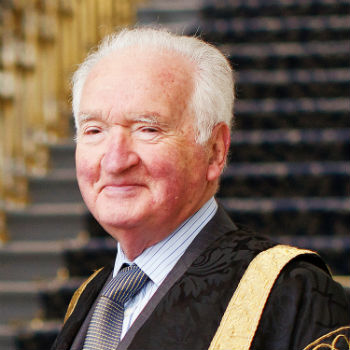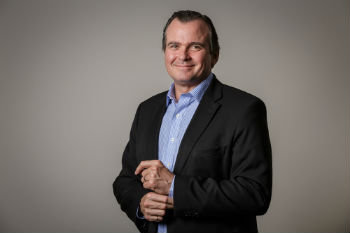-
Study
-
Quick Links
- Open Days & Events
- Real-World Learning
- Unlock Your Potential
- Tuition Fees, Funding & Scholarships
- Real World Learning
-
Undergraduate
- Application Guides
- UCAS Exhibitions
- Extended Degrees
- School & College Outreach
- Information for Parents
-
Postgraduate
- Application Guide
- Postgraduate Research Degrees
- Flexible Learning
- Change Direction
- Register your Interest
-
Student Life
- Students' Union
- The Hub - Student Blog
- Accommodation
- Northumbria Sport
- Support for Students
-
Learning Experience
- Real-World Learning
- Research-enriched learning
- Graduate Futures
- The Business Clinic
- Study Abroad
-
-
International
International
Northumbria’s global footprint touches every continent across the world, through our global partnerships across 17 institutions in 10 countries, to our 277,000 strong alumni community and 150 recruitment partners – we prepare our students for the challenges of tomorrow. Discover more about how to join Northumbria’s global family or our partnerships.
View our Global Footprint-
Quick Links
- Course Search
- Undergraduate Study
- Postgraduate Study
- Information for Parents
- London Campus
- Northumbria Pathway
- Cost of Living
- Sign up for Information
-
International Students
- Information for International Students
- Northumbria and your Country
- International Events
- Application Guide
- Entry Requirements and Education Country Agents
- Global Offices and Regional Teams
- English Requirements
- English Language Centre
- International student support
- Cost of Living
-
International Fees and Funding
- International Undergraduate Fees
- International Undergraduate Funding
- International Masters Fees
- International Masters Funding
- International Postgraduate Research Fees
- International Postgraduate Research Funding
- Useful Financial Information
-
International Partners
- Agent and Representatives Network
- Global Partnerships
- Global Community
-
International Mobility
- Study Abroad
- Information for Incoming Exchange Students
-
-
Business
Business
The world is changing faster than ever before. The future is there to be won by organisations who find ways to turn today's possibilities into tomorrows competitive edge. In a connected world, collaboration can be the key to success.
More on our Business Services-
Business Quick Links
- Contact Us
- Business Events
- Research and Consultancy
- Education and Training
- Workforce Development Courses
- Join our mailing list
-
Education and Training
- Higher and Degree Apprenticeships
- Continuing Professional Development
- Apprenticeship Fees & Funding
- Apprenticeship FAQs
- How to Develop an Apprentice
- Apprenticeship Vacancies
- Enquire Now
-
Research and Consultancy
- Space
- Energy
- AI Futures
- CHASE: Centre for Health and Social Equity
- NESST
-
-
Research
Research
Northumbria is a research-rich, business-focused, professional university with a global reputation for academic quality. We conduct ground-breaking research that is responsive to the science & technology, health & well being, economic and social and arts & cultural needs for the communities
Discover more about our Research-
Quick Links
- Research Peaks of Excellence
- Academic Departments
- Research Staff
- Postgraduate Research Studentships
- Research Events
-
Research at Northumbria
- Interdisciplinary Research Themes
- Research Impact
- REF
- Partners and Collaborators
-
Support for Researchers
- Research and Innovation Services Staff
- Researcher Development and Training
- Ethics, Integrity, and Trusted Research
- University Library
- Vice Chancellors Fellows
-
Research Degrees
- Postgraduate Research Overview
- Doctoral Training Partnerships and Centres
- Academic Departments
-
Research Culture
- Research Culture
- Research Culture Action Plan
- Concordats and Commitments
-
-
About Us
-
About Northumbria
- Our Strategy
- Our Staff
- Our Schools
- Place and Partnerships
- Leadership & Governance
- University Services
- Northumbria History
- Contact us
- Online Shop
-
-
Alumni
Alumni
Northumbria University is renowned for the calibre of its business-ready graduates. Our alumni network has over 253,000 graduates based in 178 countries worldwide in a range of sectors, our alumni are making a real impact on the world.
Our Alumni - Work For Us
Four eminent figures from the fields of law, medicine, business and influential writing will be awarded honorary degrees from Northumbria University, Newcastle, this summer.
The degrees will be awarded during the University’s annual honorary degree ceremonies, which take place between Thursday 6th July and Wednesday 12th July.

The Rt Hon Lord Mackay of Clashfern, one of the UK’s most respected and influential legal figures in recent times, is to receive a Doctor of Civil Law.
Having practised as an Advocate from 1955, Lord Mackay became a QC in 1965 and was Dean of the Faculty of Advocates before being appointed Lord Advocate in 1979. Judicial office in Scotland in 1984 was followed within a year by his appointment as a Lord of Appeal in Ordinary of the House of Lords, then the UK’s highest court of appeal.
An already distinguished career was to become unique when, in 1987, Prime Minister Margaret Thatcher invited Lord Mackay to become Lord Chancellor of Great Britain and he was to become the longest continuously serving Lord Chancellor in the 20th century.
Many other honours have followed, including his appointment as a Knight of the Thistle in 1999 – equivalent to the Order of the Garter in England.
Lord Mackay has continued to be active in the House of Lords, frequently participating in debates. In 2007 he was appointed as Lord Clerk Register of Scotland and ex officio Keeper of the Signet, the seal of the sovereign in Scotland.

Professor Kevin Fenton, Director of Health and Wellbeing at Public Health England, is to be awarded the degree of Doctor of Science.
Professor Fenton is a medical doctor, academic and public health specialist who has played a pivotal role in shaping public health in the UK, Europe and in the USA.
Born in Glasgow, he grew up in Jamaica and it was whilst doing his medical training at the University of West Indies that Professor Fenton first began to contemplate a career in public health. Even at this young age, he recognised the enormous potential for public health to impact positively upon many people.
Professor Fenton became Director of the HIV and Sexually Transmitted Infections Department for the UK Health Protection Agency in 2002. In 2005, he moved to the USA and became the Director of the Centers for Disease Control (CDC) National Center for HIV/AIDS, Viral Hepatitis, STD and TB prevention.
Under his leadership, CDC introduced new systems and procedures in the USA that have since positively impacted upon millions of lives.
He transformed the policy regarding screening for HIV and this has reduced the incidence of undiagnosed HIV in the USA and ultimately led to a change in the World Health Organisation policy regarding HIV screening. He initiated similar changes for the screening of Hepatitis C and he also introduced prophylactic pharmacological treatments to reduce the transmission of HIV in people at high risk of infection.
In 2013, Professor Fenton moved back to the UK to become the National Director for Health and Wellbeing at Public Health England. In this role, he was responsible for national prevention programmes including screening for cancer and chronic conditions, such as cardiovascular disease and diabetes, national health marketing campaigns, tackling health inequalities, and national prevention programmes including tobacco control, alcohol harm reduction, and NHS Health Checks.

Adam Serfontein, Deputy Chair of the Board of Governors at Northumbria University, will be admitted to the degree of Doctor of Civil Law during this year’s ceremonies.
Adam is the Managing Director of the Hanro Group, one of the largest privately owned property investment companies in the North East.
A local family business, Hanro was founded in 1921 as R. Rankin and Sons Transport. Diversifying into motorcar and fuel sales, with subsidiaries in finance and oil, it at one time employed 650 people. Within a few months of Adam joining the business, it sold its non-core interests to concentrate on property development and investment. Eight years later, in 2007, Adam was appointed MD.
He chairs NE1, Newcastle’s international award-winning Business Improvement District company. NE1 instigated Alive after Five, an evening economy worth an estimated £700 million, and has secured investments of £30 million for the redevelopment of Central Station and the Bigg Market.
Adam is also a member of the advisory board for InvestNewcastle, which helps businesses to locate, expand and flourish in the city; and chairs Developing Consensus, an alliance of private- and public-sector organisations, including Northumbria University, that has invested £1 billion in the regional economy over that last ten years. Adam is Chairman of the development board of Marie Curie hospice in Newcastle.

Beatrix Campbell is an award-winning journalist, author, broadcaster, campaigner and playwright, who will receive the degree of Doctor of Letters from Northumbria University.
Beatrix Campbell, OBE – or Bea as she is known – was born in Carlisle in 1947. Aged 14 she took part in the Campaign for Nuclear Disarmament’s march from Aldermaston to London in protest against nuclear weapons, and was still a teenager when she joined the Communist Party.
On leaving school, Bea worked as a reporter at the Morning Star, the voice of the Central Committee of the Communist Party of Great Britain. She recalls being ‘intoxicated’ by the women's liberation movement and, in 1972, co-founded the influential Red Rag: a Magazine of Women’s Liberation and Marxism.
During the economic crisis of 1980s’ Britain, Bea began to flex her literary muscles. As a columnist on Marxism Today – the publication that coined the term ‘Thatcherism’ – she reimagined George Orwell’s The Road to Wigan Pier.
In her Fawcett Society Prize-winning book, The Iron Ladies, she casts a curious eye on the Conservative Party’s historic base among women voters. In Goliath she dissects Britain’s dangerous places. And in Agreement! The State, Conflict and Change in Northern Ireland, she analyses the egalitarian peace treaty that was crafted out of decades of armed conflict.
Her work has gained several awards, including the Cheltenham Literature Festival Prize in 1984, the Fawcett Society Prize in 1987 and the First Time Producers Award in 1990. In 2011 Bea was named by The Guardian in its list of Britain’s Top 300 Intellectuals and one of the 100 most influential gay people of the year in the 2012 World Pride Power List.
News
- National Fellowship honours Northumbria nursing leader
- Venice Biennale Fellowship
- First cohort of Civil Engineering Degree Apprentices graduate from Northumbria
- Northumbria expands results day support for students
- Northumbria academic recognised in the British Forces in Business Awards 2025
- £1.2m grant extends research into the benefits of breast milk for premature babies
- Northumbria graduate entrepreneur takes the AI industry by storm
- Study identifies attitudes towards personal data processing for national security
- Lifetime Brands brings student design concept to life
- New study reveals Arabia’s ‘green past’ over the last 8 million years
- How evaluation can reform health and social care services
- Researchers embark on a project to further explore the experiences of children from military families
- Northumbria University's pioneering event series returns with insights on experiential and simulated learning
- Support for doctoral students to explore the experiences of women who have been in prison
- Funding boost to transform breastfeeding education and practice
- A new brand of coffee culture takes hold in the North East
- BBRSC awards £6m of funding for North East Bioscience Doctoral Students
- £3m funding to evaluate health and social care improvements
- Balfour Beatty apprentices graduate from Northumbria University
- Long COVID research team wins global award
- Northumbria researchers lead discussions at NIHR event on multiple and complex needs
- Healthcare training facility opens to support delivery of new T-level course
- Young people praise Northumbria University for delivery of HAF Plus pilot
- Nursing academics co-produce new play with Alphabetti Theatre
- Research project to explore the experiences of young people from military families
- Academy of Social Sciences welcomes two Northumbria Professors to its Fellowship
- Northumbria University set to host the Royal College of Nursings International Nursing Research Conference 2024
- 2.5m Award Funds Project To Encourage More People Into Health Research Careers
- Advice available for students ahead of A-level results day
- Teaching excellence recognised with two national awards
- Northumbria law student crowned first Apprentice of the Year for the region
- Northumbria University launches summer activities to support delivery of Holiday Activities and Food programme
- UK health leader receives honorary degree from Northumbria University
- Use of AI in diabetes education achieves national recognition
- Research animation explores first-hand experiences of receiving online support for eating disorders
- Careers event supports graduate employment opportunities
- Northumbria University announces £50m space skills, research and development centre set to transform the UK space industry
- The American Academy of Nursing honours Northumbria Professor with fellowship
- New report calls for more support for schools to improve health and wellbeing in children and young people
- AI experts explore the ethical use of video technology to support patients at risk of falls
- British Council Fellows selected from Northumbria University for Venice Biennale
- Prestigious nomination for Northumbria cyber security students
- Aspiring Architect wins prestigious industry awards
- Lottery funding announced to support mental health through creative education
- Early intervention can reduce food insecurity among military veterans
- Researching ethical review to support Responsible AI in Policing
- Northumbria named Best Design School at showcase New York Show
- North East universities working together
- Polar ice sheet melting records have toppled during the past decade
- Beyond Sustainability
- Brewing success: research reveals pandemic key learnings for future growth in craft beer industry
- City's universities among UK best
- Famous faces prepare to take to the stage to bring a research-based performance to life
- Insights into British and other immigrant sailors in the US Navy
- International appointment for law academic
- Lockdown hobby inspires award-winning business launch for Northumbria student
- Lasting tribute to Newcastle’s original feminist
- Outstanding service of Northumbria Professor recognised with international award
- Northumbria academics support teenagers to take the lead in wellbeing research
- Northumbria University becomes UK's first home of world-leading spectrometer
- Northumbria's Vice-Chancellor and Chief Executive to step down
- Out of this world experience for budding space scientists
- Northumbria engineering graduate named as one of the top 50 women in the industry
- Northumbria University signs up to sustainable fashion pledge
- Northumbria demonstrates commitment to mental health by joining Mental Health Charter Programme
- Virtual reality tool that helps people to assess household carbon emissions to go on display at COP26
- EXPERT COMMENT: Why thieves using e-scooters are targeting farms to steal £3,000 quad bikes, and what farmers can do to prevent it
- Exhibition of lecturer’s woodwork will help visitors reimagine Roman life along Hadrian’s Wall
- Students reimagine food economy at international Biodesign Challenge Summit
- Northumbria storms Blackboard Catalyst Awards
- Breaking news: Northumbria’s Spring/Summer Newspaper is here!
- UK’s first ever nursing degree apprentices graduate and join the frontline
- Massive decrease in fruit and vegetable intake reported by children receiving free school meals following lockdown
- Northumbria awards honorary degrees at University’s latest congregations
Latest News and Features

Researchers awarded NIHR funding to support real world evaluations to improve public health interventions
Researchers from the University of Glasgow and Northumbria University have been awarded £2.5…

From care leaver to government AI leader: Northumbria graduate's extraordinary journey
A Northumbria University graduate who grew up in the care system in County Durham has been…

Northumbria Academics Appointed to National Leadership Positions
Three academics from Northumbria University have been appointed to president positions across…

Northumbria students gain policymaking experience through Civil Service challenge
Students from Northumbria University have gained valuable insight into government policymaking…

Northumbria University to co-host fifth Newcastle Climate Change Forum
Northumbria University, in collaboration with Newcastle University and Newcastle City Council…

New funding to catalyse devolved cultural policy making
The AHRC Creative Communities programme based at Northumbria University has today announced…

Newcastle United kit given new life in unique sustainability collaboration
Fashion items made from recycled Newcastle United shirts have gone on display in Eldon Square…

Arts centre with a difference – Northumbria launches new series of public exhibitions
Northumbria University's School of Design, Arts and Creative Industries has announced the launch…
Upcoming events
On Weaving
Gallery North
Public Lecture: The Engineering of Human Joint Replacement - Visiting Professor Thomas Joyce
CCE1 003
-

EY Degree Apprenticeship Information Event
Northumbria University
-

Next Stop Northumbria
The Queens Hotel
-
